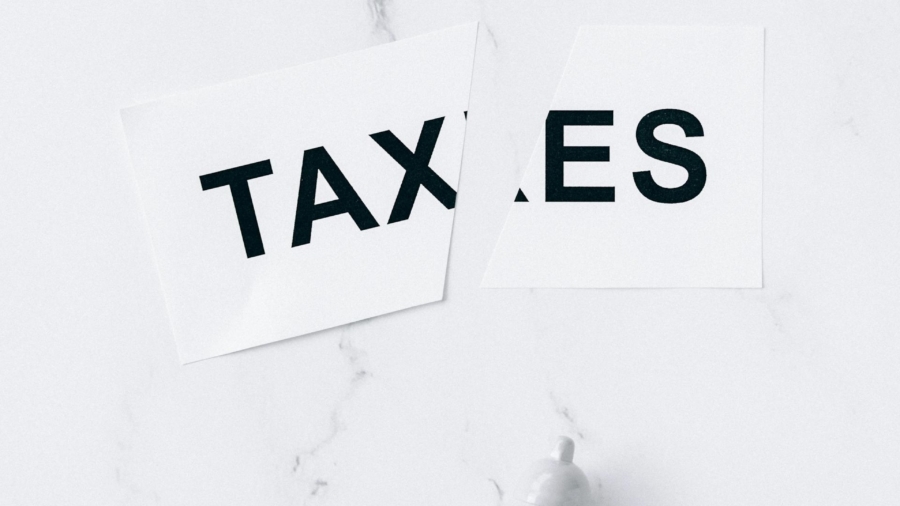Ah, taxes. They say there are two certainties in life: death and taxes. While we can’t help with the former, at AccNet Solutions Ltd, we’re here to guide you through the latter, ensuring you’re not left scratching your head when that HMRC letter lands in your inbox (or on your doorstep, if you’re a bit more old-school).
Let’s dive into the essentials of personal taxes, shall we?
- The Basics: What is Personal Tax?
Personal tax in the UK is, in essence, a contribution you make to the government based on your income. This money goes into public services like the NHS, schools, infrastructure, and even filling those pesky potholes on your street.
The main types of personal taxes include:
- Income Tax: Taken from your wages, salary, or other earnings like rental income.
- National Insurance: A separate contribution that goes towards your state pension and other benefits.
- Capital Gains Tax: When you sell something (like property or investments) for more than you bought it, you might owe tax on the profit.
- Dividend Tax: If you’re a shareholder or run a limited company, this tax applies to the dividends you receive.
- Inheritance Tax: A tax on the estate (property, money, and possessions) of someone who’s passed away—though don’t worry, it usually only applies to wealthier estates.
- Income Tax: Your Main Player
When most people talk about personal tax, they’re referring to Income Tax. Here’s how it works in a nutshell:
The UK operates a progressive tax system, which means the more you earn, the higher percentage of tax you pay. Think of it like a slice of cake—your first slice is tax-free, but the more you pile on your plate, the more HMRC takes.
How It Works in Real Life:
Imagine you’re a graphic designer named Sarah. She earns £40,000 a year from her full-time job. Here’s what her Income Tax situation looks like:
- Personal Allowance(2024-2025): £12,570 (This part of your income is tax-free!)
- Basic Rate (20%): You’ll pay 20% tax on income between £12,570 and £50,270.
- Since Sarah earns £40,000, she’ll pay 20% tax on £40,000 – £12,570 = £27,430.
Tax bill: £27,430 x 20% = £5,486.
Sarah’s total Income Tax for the year is £5,486. That’s the price of keeping the country running and NHS free at the point of service!
- National Insurance: Not Just for Your Pension
National Insurance (NI) often gets lumped in with Income Tax, but it’s its own beast. If you’re employed or self-employed, you pay NI to qualify for certain benefits, including the state pension.
For Sarah, on her £40,000 salary, she’ll pay:
- Class 1 National Insurance: 12% on earnings between £12,570 and £50,270.
- NI bill: (£40,000 – £12,570) x 12% = £3,295.60.
In total, Sarah will contribute £3,295.60 in National Insurance for the year, helping to fund things like maternity leave, sick pay, and (eventually) her pension.
- Other Taxes: Capital Gains, Dividends, and More
While Income Tax and NI are the bread and butter for most people, there are a few other taxes you might encounter:
- Capital Gains Tax: If Sarah sells a property that isn’t her main home and makes a profit of £50,000, she could owe Capital Gains Tax on the profit.
- Basic rate taxpayers pay 10% on gains (or 18% on property), and higher rate taxpayers pay 20% (or 28% on property).
- Dividend Tax: Let’s say Sarah also runs a side business as a limited company and pays herself dividends. She’ll pay tax on those dividends above £1,000 (the annual tax-free dividend allowance). The rates range from 8.75% to 39.35%, depending on her total income.
- How to Keep HMRC Happy
Tax can be a bit of a minefield, but the key is keeping everything above board and understanding your obligations. Here are a few tips to make sure you’re on the right side of the taxman:
- Check Your Tax Code: Your tax code determines how much tax gets deducted from your salary. If it’s wrong, you could be paying too much (or too little).
- File on Time: For those who need to submit a Self-Assessment tax return (self-employed, landlords, high earners, etc.), make sure to meet the deadlines. Miss it, and you could face a fine.
- Keep Good Records: Whether you’re an employee or self-employed, keeping records of your income, expenses, and allowances is crucial. This can help you claim deductions and avoid mistakes.
- Need a Helping Hand? Contact AccNet Solutions!
We know taxes can feel overwhelming—whether you’re trying to figure out how much you owe, what allowances you’re entitled to, or when you need to pay it. At AccNet Solutions Ltd, we’re here to simplify things and take the stress off your shoulders.
Drop us a line, and we’ll make sure you’re making the most of your tax situation—without the stress! Let’s keep the potholes filled, but make sure your wallet stays as full as possible, too.



